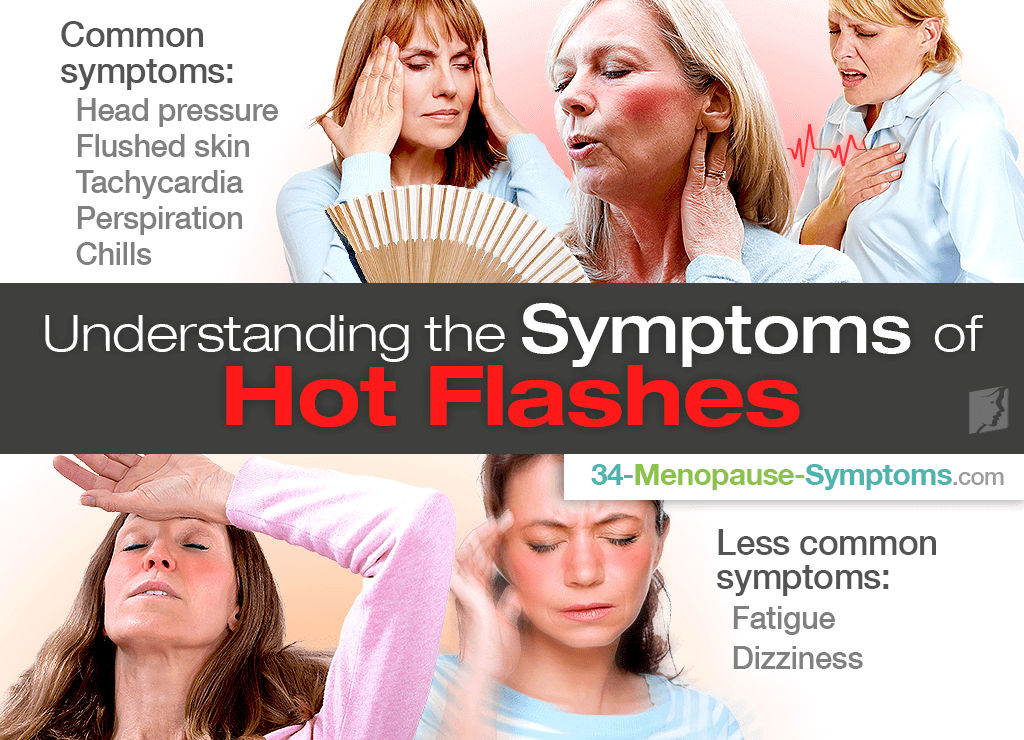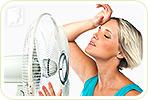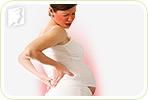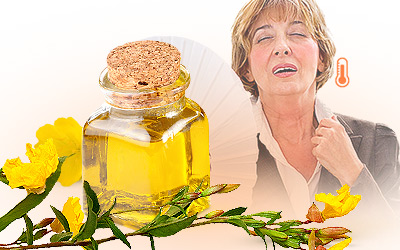Around 75% of women experience hot flashes as they go through menopause. Hot flashes are frequently referenced and talked about, but often exactly what they are, as well as what other symptoms they can evoke, gets ignored. Also, hot flash symptoms vary greatly from woman to woman.
Continue reading to learn more about common and less common symptoms of hot flashes for a greater understanding of them and how you can conquer this overbearingly hot occurrence.
Common Symptoms of Hot Flashes
Hot flashes seem pretty self-descriptive - a sudden flush of heat that can radiate throughout a woman's body. Usually, the heat is isolated to a woman's head and upper body and is of a moderate intensity. However, hot flashes can also include:
Pressure in the Head
Often, women will notice mild to moderate pressure in their head just prior to the onset of the hot flash. This pressure lets some know that a hot flash episode is imminent.
Flushed Skin
The skin on a woman's face, neck, and chest will often appear reddish and blotchy. This flushing is caused by blood vessels dilating as blood rushes to the upper part of the body.
Rapid Heart Rate
This is usually not a cause for a concern and is a symptom many menopausal women experience along with hot flashes.
Perspiration
Hot flashes often cause women to sweat. When they happen at night, they are called night sweats and cause similar amounts of perspiration that can soak the bed sheets.
Chills
Many women experience chills after a hot flash as their body tries to cool down after the abrupt increase in body heat.
Less Common Symptoms of Hot Flashes
Hot flashes can also cause a range of lesser-acknowledged symptoms, such as:
Fatigue
If nocturnal hot flashes - night sweats - happen often enough, they can disturb a woman's sleep and cause her drowsiness and fatigue during the following day.
Dizziness
Occasionally, the heat of a hot flush can be intense enough for a woman to feel dizzy, as if she stood up too quickly. Exhaustion and dehydration can also heighten feelings of dizziness.
More Information
If your hot flashes are altering your quality of life, it is important to talk to a doctor about what you are experiencing and the best hot flash treatment to pursue.
Treatment methods that involve fewer side effects include lifestyle changes to promote overall health and avoid triggers in addition to the implementation of natural medicines, like phytoestrogenic herbal supplements and hormone-regulating supplements to combat the underlying hormonal imbalance. For women who are more inclined for fast relief, hormone replacement therapy (HRT) is usually pursued, which brings with it its associated risks.
While pesky, hot flashes and their associated symptoms do not have to make their way into your daily routine. Proper initiative and a will to come out on top can squash this discomforting symptom in its tracks.
Sources
- Cleveland Clinic. (n.d.). Women & Abnormal Heart Beats: Symptoms & Diagnosis. Retrieved November 15, 2018, from https://my.clevelandclinic.org/health/diseases/17644-women--abnormal-heart-beats/symptoms--diagnosis
- Mayo Clinic. (2018). Hot flashes: Symptoms & causes. Retrieved November 15, 2018, from https://www.mayoclinic.org/diseases-conditions/hot-flashes/symptoms-causes/syc-20352790




